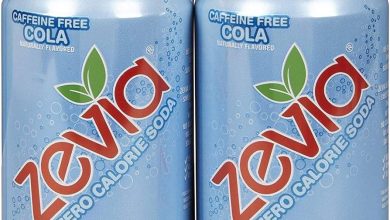Cabbage (Danish Domestic Pointed Types) – Raw
Cabbage, specifically the Danish domestic pointed varieties, is a popular vegetable that is often enjoyed for its crisp texture and mild, slightly sweet flavor. Typically stored raw, it offers a range of nutritional benefits, making it an excellent addition to salads, coleslaws, soups, and a variety of cooked dishes. This vegetable is a great source of fiber, vitamins, and minerals, while being low in calories and fat.
Nutritional Breakdown (per 100g of raw cabbage):
| Nutrient | Amount |
|---|---|
| Energy | 24 kcal |
| Protein | 1.21 g |
| Fat | 0.18 g |
| Saturated Fats | 0.023 g |
| Carbohydrates | 5.37 g |
| Fiber | 2.3 g |
| Sugar | 0.0 g |
| Calcium | 47 mg |
| Iron | 0.56 mg |
| Magnesium | 15 mg |
| Phosphorus | 23 mg |
| Potassium | 246 mg |
| Sodium | 18 mg |
| Zinc | 0.18 mg |
| Copper | 0.023 mg |
| Manganese | 0.159 mg |
| Selenium | 0.9 mcg |
| Vitamin C | 42 mg |
| Thiamin (B1) | 0.05 mg |
| Riboflavin (B2) | 0.03 mg |
| Niacin (B3) | 0.3 mg |
| Vitamin B6 | 0.095 mg |
| Folate | 57 mcg |
| Vitamin B12 | 0.0 mcg |
| Vitamin A | 6 mcg |
| Vitamin E | 0 mg |
| Vitamin D2 | 0.0 mcg |
Allergen Information:
Cabbage is naturally allergen-free. It is suitable for individuals with common food allergies. However, it’s important to note that, like other cruciferous vegetables, it may cause bloating or gas in some individuals, especially when consumed in large quantities.
Dietary Preferences:
Cabbage is highly versatile and fits into a variety of dietary preferences, including:
- Low-Calorie Diets: With only 24 kcal per 100g, it is a perfect addition to weight loss plans.
- Vegan & Vegetarian: It contains no animal products, making it ideal for those following a plant-based diet.
- Gluten-Free: Naturally gluten-free, cabbage is a safe choice for individuals with gluten sensitivity or celiac disease.
- Low-Carb: With only 5.37g of carbohydrates per 100g, cabbage fits well into low-carb and keto diets.
- High-Fiber Diets: Offering 2.3g of fiber per 100g, cabbage supports digestive health.
Health Benefits:
Cabbage is packed with nutrients that promote overall health. Here are some of its key benefits:
- Rich in Vitamin C: With 42 mg of vitamin C per 100g, cabbage plays a vital role in boosting immunity, fighting off infections, and promoting healthy skin.
- Supports Digestion: The high fiber content aids in digestion and helps prevent constipation, promoting a healthy gut.
- Heart Health: The potassium content in cabbage supports cardiovascular health by helping to manage blood pressure levels.
- Bone Health: With its calcium and magnesium content, cabbage helps maintain strong bones and teeth.
- Antioxidants: Cabbage contains a range of antioxidants, including vitamin C and selenium, which can help reduce oxidative stress and lower the risk of chronic diseases.
Cooking Tips:
- Raw: Cabbage is delicious when shredded into coleslaw or tossed into salads for a refreshing crunch.
- Steamed or Sautéed: It can be lightly steamed or sautéed to bring out its natural sweetness. Pair with olive oil, garlic, and a pinch of salt for a simple and tasty side dish.
- In Soups and Stews: Cabbage can be added to soups and stews, where it absorbs the flavors of the broth while maintaining its texture.
- Fermented: Cabbage is the main ingredient in sauerkraut and kimchi, both of which offer probiotic benefits for gut health.
Conclusion:
Cabbage, particularly the Danish domestic pointed type, is a versatile and nutritious vegetable that is low in calories but rich in vitamins and minerals. Its high fiber content, combined with a wealth of essential nutrients like vitamin C and potassium, makes it an excellent choice for anyone looking to improve their diet. Whether eaten raw in salads or cooked in soups and stews, cabbage is a fantastic addition to any meal, supporting a variety of dietary preferences and providing numerous health benefits.










